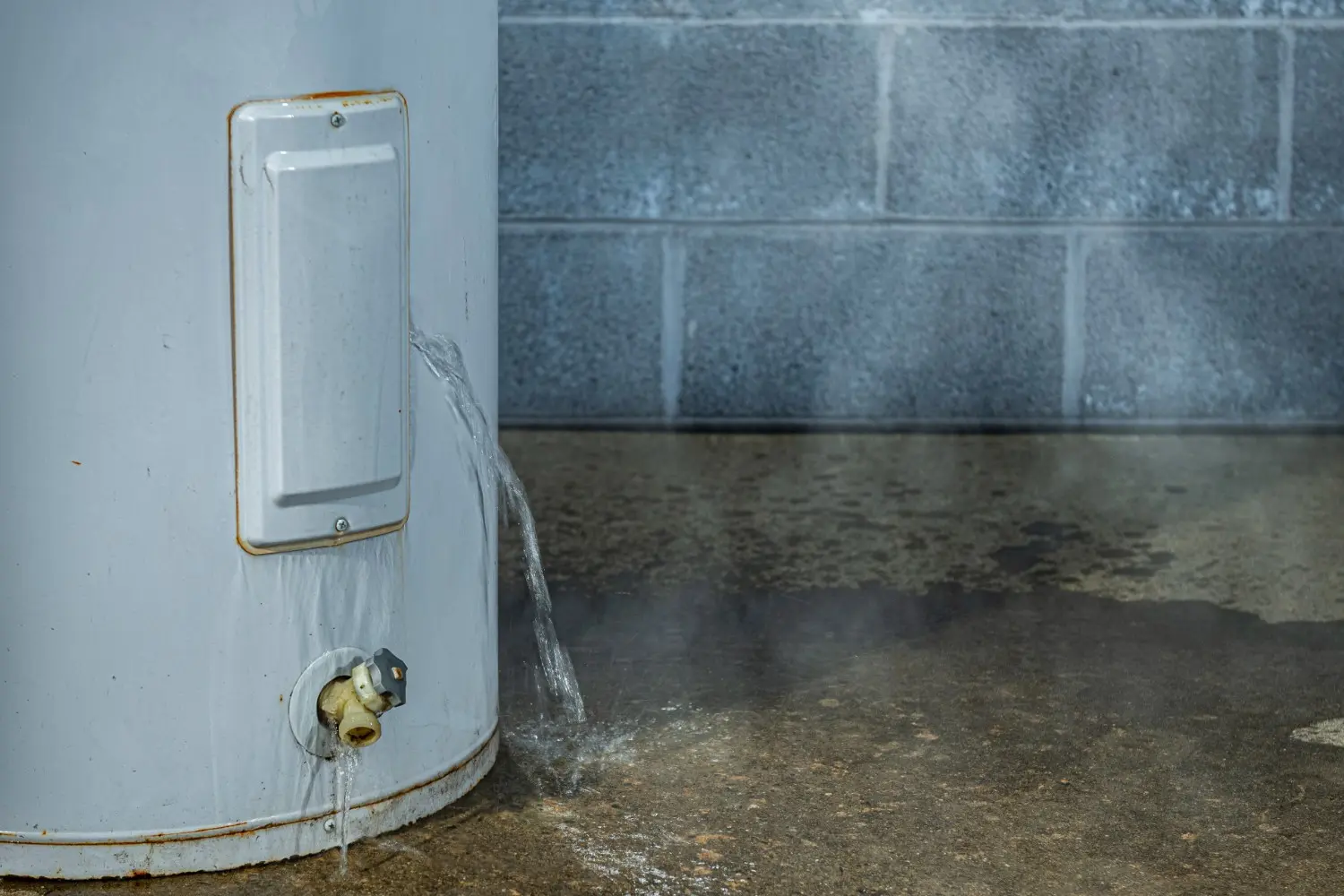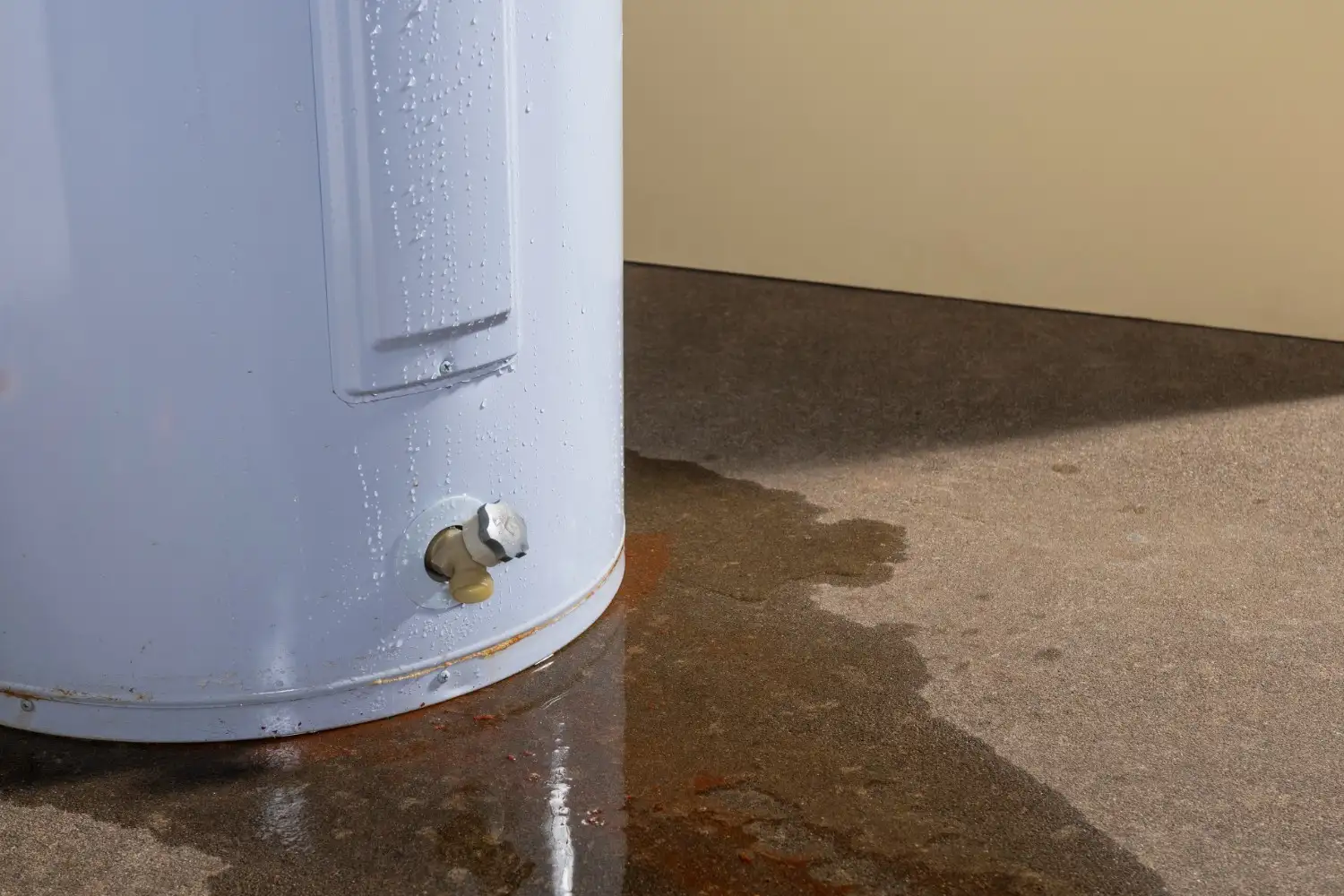Water Heater Leaking in Boerne, TX? Get Expert Repair
A leaking water heater is more than just an inconvenience; it's a potential emergency that demands immediate attention. If you've discovered water pooling around the base of your water heater in your Boerne, TX home, or notice other signs of a leak, understanding the urgency and knowing who to call is critical. Ignoring a leaking water heater can lead to significant property damage, mold growth, and even safety hazards.
Addressing a water heater leak quickly can save you from costly repairs down the road. Water damage spreads rapidly, affecting flooring, walls, and even structural components. Moreover, standing water near electrical connections or gas lines poses serious risks. Roadrunner Plumbing & Air specializes in identifying the source of water heater leaks and providing fast, reliable repairs throughout the Boerne area.
Why a Leaking Water Heater is an Emergency
Water heaters hold a large volume of water under pressure. A leak, whether a slow drip or a sudden gush, indicates a breach in the system's integrity. Here's why prompt action is essential:
- Extensive Water Damage: Even a small leak can release gallons of water over time, saturating floors, damaging subflooring, drywall, and potentially affecting multiple rooms.
- Mold and Mildew Growth: Water creates a perfect environment for mold and mildew within 24-48 hours. This can lead to health issues and further structural damage.
- Structural Compromise: Long-term exposure to water can weaken wooden structures, leading to sagging floors and compromised integrity.
- Electrical Hazards: Water and electricity are a dangerous combination. A leak near electrical components or outlets can create a serious risk of shock or fire.
- Gas Leaks (for Gas Heaters): While not a direct cause of the water leak itself, damage or corrosion from water could potentially impact gas line connections, posing a gas leak risk.
- Reduced Water Heater Efficiency: A leaking tank loses hot water, forcing the unit to work harder, increasing energy bills, and potentially leading to premature failure.
The potential consequences highlight why a "wait and see" approach is never advisable when dealing with a leaking water heater in your Boerne home.

How to Spot the Signs of a Water Heater Leak
Sometimes a leak isn't immediately obvious. Knowing the signs can help you catch an issue before it escalates:
- Visible Water: The most apparent sign is water pooling around the base of the water heater or damp spots on nearby walls or flooring.
- Rust or Discoloration: Rust stains on the outside of the tank or rust-colored water coming from your taps can indicate internal corrosion.
- Unusual Sounds: Hissing, dripping, or trickling sounds coming from the unit when it's not actively heating may signal a leak.
- Reduced Hot Water: A leak can cause the tank to lose hot water capacity, leading to inadequate hot water supply.
- Musty Odors: Persistent dampness or mold growth near the unit can cause unpleasant, musty smells.
- Unexpected Increase in Water Bill: An unexplained spike in your water bill could be a hidden leak, potentially from the water heater.
If you notice any of these signs, it's time to investigate or contact a professional.
Emergency! What To Do If Your Water Heater is Leaking
Discovering a leak requires quick, safe action to minimize damage. Follow these steps immediately:
- Safety First: Avoid standing in water near the water heater, especially if it's electric, due to the risk of electric shock.
- Shut Off the Water Supply: Locate the cold water shut-off valve on the pipe leading into the top of the water heater (often has a handle or knob). Turn it clockwise as far as it will go to stop the flow of water into the tank.
- Shut Off Power or Gas:
- Electric Water Heater: Go to your home's electrical panel and locate the breaker specifically for the water heater. Flip the breaker to the "Off" position.
- Gas Water Heater: Locate the gas shut-off valve on the gas line leading to the water heater. This is usually a small valve or knob near the bottom of the unit. Turn the valve so the handle is perpendicular to the pipe. Also, turn the thermostat control dial on the water heater itself to the "Off" or "Pilot" setting.
- Begin Water Cleanup: Once the water and power/gas are safely off, start mopping or using towels to contain and clean up the spilled water to prevent further damage.
- Contact a Plumbing Professional: With safety measures in place and water flow stopped, reach out for professional help immediately.
These steps are crucial for protecting your home and ensuring personal safety while waiting for expert assistance.
Understanding Why Your Water Heater is Leaking
Water heater leaks can originate from several different points on the unit, each indicating a specific issue:
- Tank Corrosion: This is one of the most common causes, especially in older units. Over time, the protective lining inside the steel tank can degrade, often due to reactions with minerals in the water (even treated water like that found via Water Softeners or Water Filtration can contain corrosive elements). Once the steel is exposed, it rusts and eventually creates pinhole leaks or cracks. If the tank itself is leaking, repair is usually not possible, and replacement is needed.
- Faulty Temperature and Pressure Relief (TPR) Valve: This safety valve is designed to open and release water if the temperature or pressure inside the tank gets too high. If the TPR valve is constantly dripping or leaking, it could indicate excessive pressure or temperature, or the valve itself might be faulty and need replacement. Ignoring a leaking TPR valve is dangerous as it signals a potential safety issue with the unit.
- Leaking Drain Valve: Located near the bottom of the tank, the drain valve is used for flushing sediment. It can sometimes become loose, corroded, or simply fail, leading to a leak. This valve can often be repaired or replaced.
- Loose or Corroded Connections: The pipes connecting the cold water inlet and hot water outlet to the top of the water heater can develop leaks at the joints or fittings due to age, corrosion, or improper installation. These leaks can sometimes be repaired by tightening or replacing the faulty connections or sections of Plumbing Services.
- Faulty Anode Rod: The anode rod is a metal rod inside the tank designed to corrode instead of the tank lining, extending the tank's life. If it's completely depleted, the tank steel becomes vulnerable. While a faulty anode rod doesn't directly cause a leak, its failure accelerates the tank's degradation, leading to leaks sooner. Replacing the anode rod is part of regular Water Heater Maintenance but won't fix a tank that has already corroded and started leaking.
Identifying the exact source of the leak is essential for determining the correct course of action, whether it's a simple repair or a necessary replacement.
The Roadrunner Plumbing & Air Approach to Leak Repair in Boerne
When you contact us about a water heater leak in your Boerne home, you can expect a prompt and professional response. Our process is designed to quickly diagnose the issue and provide an effective solution:
- Rapid Response: Understanding the urgency, we prioritize water heater leak calls to minimize potential damage to your property.
- Expert Diagnosis: Our experienced technicians arrive equipped to quickly assess the situation, identify the precise source of the leak using specialized tools if needed, and determine the underlying cause. This includes checking the tank, valves, connections, and overall system condition. Our expertise extends to various Water Heaters, including conventional and tankless units.
- Clear Explanation & Options: Once the problem is diagnosed, we explain the cause of the leak in clear terms. We'll present you with the available options, whether it's a viable repair or if replacement is the most practical and long-term solution, especially if the tank is compromised or the unit is old.
- Efficient and Lasting Solution: If repair is possible, we use quality parts and proven techniques to fix the leak correctly. If replacement is necessary, we can guide you through selecting a new unit that meets your needs and ensure a professional installation.
- Cleanup and Testing: After the work is complete, we ensure the area is cleaned up. We then test the water heater and connections to confirm the leak is stopped and the unit is operating safely and efficiently.
Our goal is not just to stop the leak but to provide a lasting solution that restores your peace of mind and protects your home.
Repair or Replace? Finding the Right Solution
When faced with a leaking water heater, a key decision is whether to repair the existing unit or invest in a new one. This often depends on the source of the leak and the age of the water heater:
- Repair is Often Feasible If: The leak originates from a replaceable part like the drain valve, TPR valve, or inlet/outlet connections. These are often straightforward fixes.
- Replacement is Usually Necessary If: The leak is coming directly from the tank itself. Tank leaks are typically caused by internal corrosion, which cannot be repaired. Once the tank is compromised, it's time for a new unit.
- Considering Age: Water heaters have a limited lifespan, typically 8-12 years. If your leaking water heater is approaching or beyond this age, replacement might be the more cost-effective option in the long run, even if the leak is technically repairable. An older unit may soon experience other failures.
Our technicians will provide an honest assessment of your water heater's condition and help you weigh the pros and cons of repair versus replacement based on your specific situation and the age of your unit. We can also discuss options like financing options if a replacement is needed.
Boerne's Trusted Choice for Water Heater Leaks
Living in Boerne, you need a plumbing company that understands local needs and can respond quickly to emergencies. We are proud to serve the Boerne community with reliable and professional Plumbing Services.
- Local Expertise: We are familiar with the types of plumbing systems and water quality issues that can affect water heaters in the Boerne area.
- Fast Response: We prioritize urgent calls like water heater leaks to get a technician to your home as quickly as possible to mitigate damage.
- Experienced Professionals: Our technicians are licensed, trained, and equipped to handle all types of water heater leaks and repairs safely and effectively.
- Transparent Service: We provide clear explanations and upfront options before beginning any work.
- Commitment to Quality: We stand by our work and offer a [Worry-Free Warranty] on our services, as described on our homepage, ensuring you have peace of mind. Check our Coupons page for potential savings on your service.
When a water heater leak disrupts your home in Boerne, you can trust Roadrunner Plumbing & Air to fix the problem right.
Frequently Asked Questions About Water Heater Leaks
How much does it cost to fix a leaking water heater?
The cost varies greatly depending on the source of the leak and whether a repair or full replacement is needed. Simple valve replacements are less costly than replacing the entire unit. We provide an assessment and estimate after diagnosing the issue.
Can I fix a water heater leak myself?
While some minor leaks like a loose drain valve might seem simple, addressing a water heater leak involves working with water pressure, potentially high temperatures, electrical components, or gas lines. Attempting DIY repairs without the necessary expertise and tools is highly discouraged due to safety risks and the potential to cause more extensive damage. Professional repair ensures the job is done safely and correctly.
How long does a water heater leak repair take?
The time required depends on the complexity of the issue. A simple valve replacement might take an hour or two, while replacing the entire unit will take longer. We can provide an estimated timeframe once the leak is diagnosed.
What are the signs my water heater needs replacing, not just repairing?
Key indicators that replacement is likely necessary include leaks coming directly from the tank itself (not just a valve or connection), the water heater being old (over 10-12 years), frequent breakdowns, or significant rust and corrosion evident on the unit or in your water.
How can I prevent water heater leaks?
Regular Water Heater Maintenance is key. This includes flushing the tank annually to remove sediment, checking and testing the TPR valve, inspecting connections, and having the anode rod checked periodically. Consider a Plumbing Inspection to catch potential issues early. Addressing water quality with systems like Water Softeners or Water Filtration can also help prevent internal corrosion.
Financing options
flexible financing solutions

We offer convenient financing options through Wells Fargo, making it easier to invest in plumbing or HVAC upgrades with flexible payments that fit your budget. Your comfort, safety, and satisfaction are always our top priorities—every service, every time.
Apply for Financing
We offer flexible financing options through GreenSky to help you move forward with essential plumbing or HVAC upgrades without delay. With quick approvals and affordable monthly payments, you can get the service you need while staying within budget.
Apply for Financing
We offer financing through Synchrony to make it easier to get the plumbing or HVAC service you need without delay. With simple application steps and convenient monthly payments, you can manage costs while enjoying reliable home comfort.
Apply for Financing
where we serve

